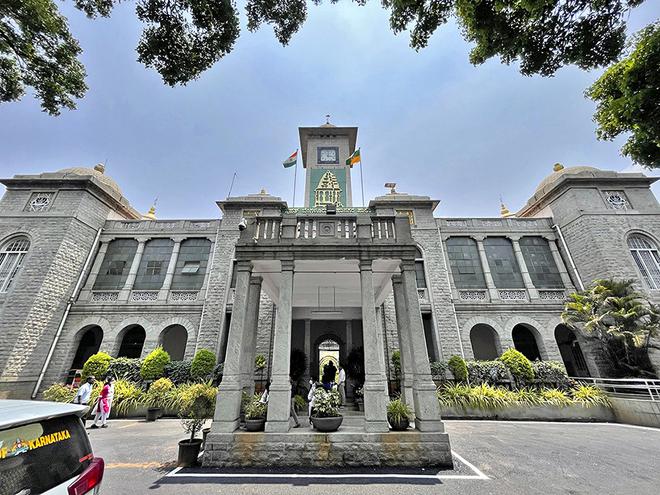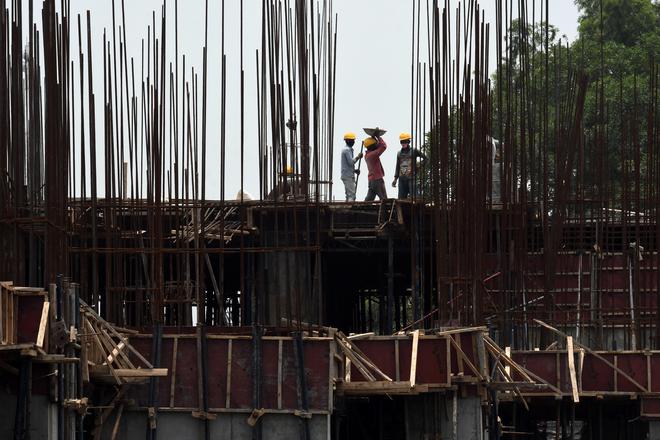The story so far
The Karnataka government in the Belagavi session brought an amendment to the Bruhat Bengaluru Mahanagara Palike (BBMP) Act, 2020, with retrospective effect to regularise the collection of ground rent from the property owners. With this, the BBMP aims to avoid repayment of about ₹1,712 crore to the property owners and builders in the city which it collected from them.
After a section of builders approached the Karnataka High Court over collection of ground rent by the BBMP, the collection of such fees was termed “illegal.” The court found merit in the argument of the builders that the BBMP was collecting the fee despite there being no such provisions in the BBMP act. The court directed the BBMP to repay the money to the builders. To avoid payment, the government passed BBMP and Certain Other Law (amendment) bills in the recently concluded winter sessions in Belagavi.

How it all began
All this began in the year 2015 when IAS officer T.M. Vijay Bhaskar was administrator of the BBMP. The Town Planning Department of the civic body sent a proposal to Vijay Bhaskar asking him to fix the fee amount for ground rent, licence fee, building licence fee, scrutiny fee and other miscellaneous fee for sanction plan. Vijay Bhaskar, who retired as Chief Secretary on December 31, 2020, approved the same and said cess which is collected should be linked to the guidance value of the property.
Between 2015 to 2021, the BBMP had collected ₹ 1,712 crore from the builders. The BBMP is yet to recover ₹688 crores from them. The BBMP has been collecting the fees issuing circulars, though there were no provisions in the law to make collection. Back in 2015, a section of builders started to approach the High Court pleading with the court to end the system of ground rent. The fees are levied per square feet and this, in turn, depends on the guidance value of the area.
Also read: Contractors demand immediate clearance of pending bills
A builder said in the past the Bengaluru City Corporation was collecting ground rent from property owners for it, allowing it to dump construction materials on the footpaths and public spaces. However, after the formation of the BBMP and rules about footpaths, the civic body mandated not to dump waste and construction materials either on footpaths or in public spaces. With this, the right to collect ground fee also came to an end. Now, no builders can put materials outside the construction site and the collection is not just unfair but illegal. The builders also asked the High Court to reduce other fees.
In 2021 and 2022, the BBMP issued circulars saying it has amended rules for collection of ground rent, making it mandatory for the builders to pay this fee. This is despite in 2021 High Court termed the circular ultra vires. In the fag end of 2022, the High Court came down heavily on the BBMP terming the collection illegal.

Government comes up with proposal, amends
Realising that BBMP may have to lose the already collected money, the civic body sent a proposal in August, 2023, to the Urban Development Department (UDD) to include provisions in the BBMP Act to avoid repayment and regularise ground rent. The BBMP said the amendment should be made with retrospective effect to avoid repayment.
According to the sources, Deputy Chief Minister and Bengaluru Development Minister D.K. Shivakumar showed interest in the proposal and directed a draft amendment. In the session he explained why the amendment was necessary, “Based on the circular, the government had collected ₹ 1,712 crore between 2015 and 2023 and it was yet to collect another ₹688 crore. There were some lapses in the circular due to which the High Court ruled against it. The order meant that the BBMP has to refund the collected sum. To rectify this, amendment is necessary.”
Why are builders objecting to the move?
According to a builder, who approached the court, the government cannot bring an amendment with retrospective effect and even this will be questioned in the High Court. The builders were hoping to get crores which they paid to the civic body knowing fully well that it was illegal and now the government has used a “trick” to protect the BBMP.
What the BBMP says and what are its implications?
However, a BBMP official said the government has every power to amend the rules with retrospective effect and there were many instances of it in the past.
The one fruitful outcome of the exercise is that the government has now agreed to slash the plan approval fee. The government has to now frame rules to the amended provisions. It is said that fee will be reduced while framing the rules.







